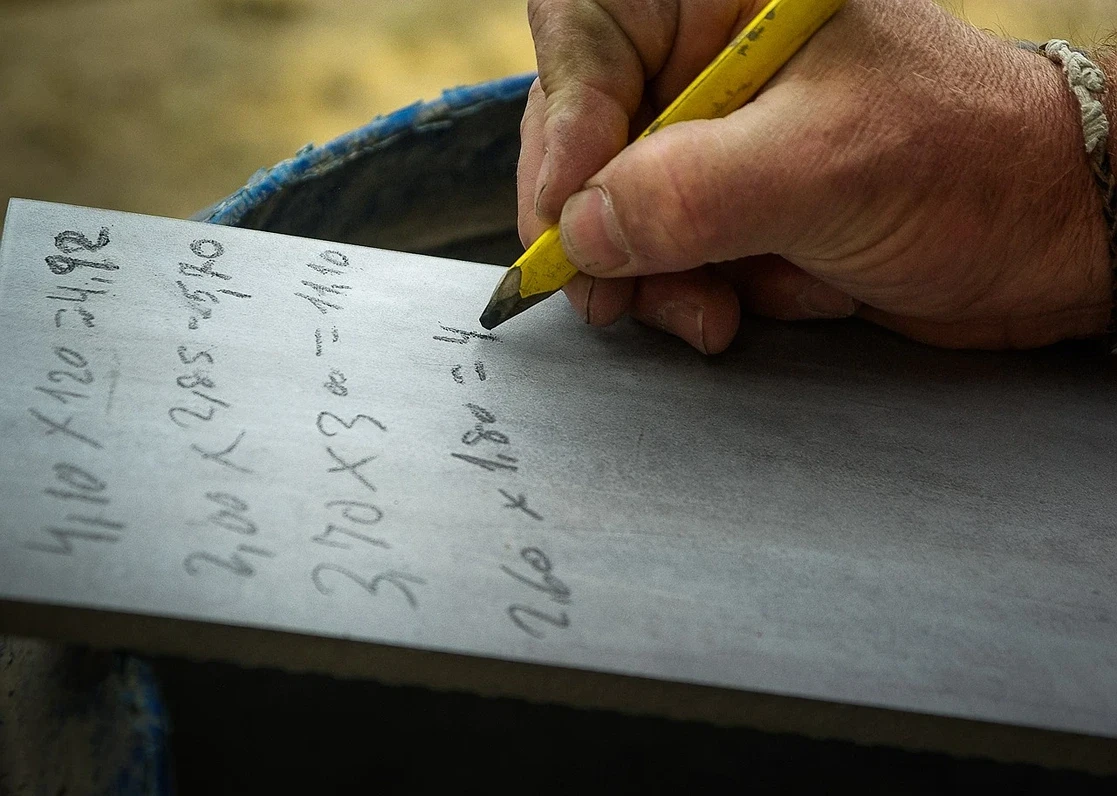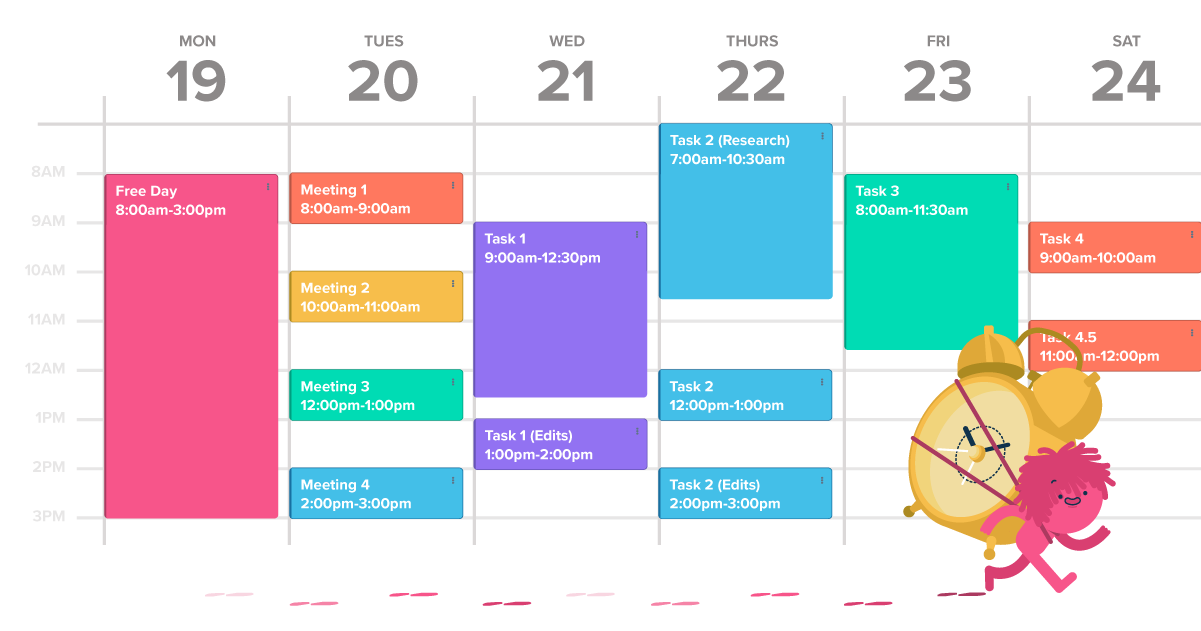How about Some Quick Study Break Exercises?
Studying, revising, writing papers, doing research – it all takes a lot of dedicated effort and time. No wonder we procrastinate so much. Still, once you’ve made up your mind and found your motivation to study, you might find yourself glued to your chair, books, and screen. But we’re here to remind you that you mustn’t forget to take breaks with a set of quick study break exercises!
What makes these particularly useful for your study sessions?
Regular study breaks are:
- great for boosting your concentration
- helpful when you find yourself frustrated
- a good chance to recharge and come back stronger
When you catch your attention wandering, eyelids becoming heavy, and mind going towards your phone and social media time-eaters, take some time for a break.
You should take a short break at least once every 90 minutes. This can be more frequent if you’re practising the Pomodoro technique or know your attention limit peaks at around 45 or 60 minutes. However, what you should do during your study break is a matter of some study science, as we all have different preferences. One thing is certain – your study break should not be an excuse to procrastinate! And it should not be done in a way that will make it difficult to go back to studying.
Working out in your study breaks is a wonderful, time-effective way to get your groove back so that you can return to your subject with more energy and motivation.
Why Squeeze a Workout Between Study Breaks?
But why do a workout between your study sessions? If you’re a fitness fan, you’re well aware of the benefits of a good workout session, but even so, you might think that a short workout is not as effective. On the other hand, if you prefer to swear by your own refusal to exercise, I invite you to reconsider your habits and reap some of the benefits offered by fitness routines.
The Multiple Benefits of Quick Study Break Exercises
- They are energising and refreshing. Getting a ten-minute cardio boost in your break will wake you up better than any cup of strong coffee. Besides, you shouldn’t be drinking too many cups of coffee a day. Instead, try getting a bit of air into your lungs and see your performance improve.
- They give you a sense of control. It’s pretty easy to start drowning in panic when facing a big test or many deadlines. Working out can help you reclaim your peace as you control what and how much of it you want to do.
- Stress-relief. Need I say more? Any activity that gets your heart rate up has the power to boost your mood. Even the shortest of sessions will leave you feeling better and more relaxed.
- Better discipline. Working out is a great way to work on your discipline and transfer that across the board. Nobody is ALWAYS motivated to work out, but in the case of fitness, it’s enough just to start moving. Within minutes, you’ll realise that you’re already going with the flow. Once this ‘just get moving’ mentality has set into your fitness regime, you’ll start applying it to your studies, too. When motivation runs away, discipline flies in, and you ‘just do it!’
- Increased fitness levels. Being a couch potato is easy. Much easier than getting any exercise, for sure, but also far less healthy. Your body needs as much attention and diligence as your mind, and quick study break exercises can improve your overall health. If you incorporate three to four short workout study breaks in your day, you’ll see changes in your fitness (and body composition) in as little as two weeks!

So, What Kind of Quick Study Break Exercises Should You Do?
Study break workouts should be short and easy to get straight into. So, gym is a no-go, and so are complicated gadgets, ellipticals, and inside bikes. Before you gasp and clutch at your pearls and then your beloved indoor bicycle, allow me to explain.
Repetitive motions do NOT challenge your brain and are therefore not as stimulating. In fact, people tend to end up staring at their phone or, even worse, the calorie counter, just going through the motions and not allowing themselves to accomplish anything. For your study breaks, opt for bodyweight workouts or some basic dumbbells, or go outside and have a quick jog or a ride on your bicycle.
So, what can you do?
A 15-Minute Study Break …
… is actually a lot of time for fitness!
- Go for a brisk walk. Don’t worry too much about any particular clothes – just grab some comfy shoes and your jacket and hit the door. Make a quick round around the block or your building complex, or head to the closest playground/landmark. Walking lets your mind wander, too, allowing you to get some much-needed rest.
- Try simple meditation. Reconnect with nature and yourself and do some simple grounding exercises. If you’re new to meditation and this all sounds too confusing, check out our post on Headspace, the meditation app.
- Do a light cardio progression. Shake up your muscles with a simple cardio warm-up that you can do anywhere.
- If you’re an experienced exerciser, you can do a quick HIIT (high-intensity interval training) or strength routine. That being said, make sure you do a quick warm-up and cool-down.
- When was the last time you saw a jump rope? I know, in high school. But if you invest a few quid into one, you’ll have an endless supply of combinations to try out, and you’ll be able to challenge your mind and coordination in a unique way.
- Replace indoor machines for outside freshness. Go for a jog, hop on your bike, or try Nordic walking. Being outside allows your mind to be stimulated by external factors – people walking by, different terrains, fresh air. All of this works together to freshen you up instead of mindlessly pedalling in your own room.
5-Minute Study Break Workouts …
… for the busiest of the busy.
- Go for a quick wake-up call cardio workout. An energy-boosting routine that gets you huffing and puffing in only five minutes – yes, it’s possible!
- Try some basic stretches. No frills here; just get up and follow this simple progression:
- Stand up and start moving your head, looking left to right. Try to push as far as possible and hold the stretch. Do the same with looking up and down, pushing your chin against your chest and then focusing on the ceiling when you look up.
- Roll your shoulders forwards and backwards slowly while taking a deep breath with each roll. After a few repetitions, you can start making arm swings forwards and backwards.
- Toe-touch circles are next. Start by lowering your torso to one side until you touch your toes before returning and repeating the motion in the opposite direction.
- Swing your legs. Do this slowly, don’t let the momentum guide you – you should be able to stop and hold your leg in any position. Repeat ten times on each side.
- Touch your toes, slowly lean towards each of your feet, and hold the stretch for thirty seconds. Remember, when doing stretches, you should feel it in your muscles but never push to the point of pain. Listen to your body and move in a way that feels good and refreshing.
- Do a scientific seven-minute workout. This one will tackle all major muscle groups in your body in just seven minutes, acting as a fast-paced and sweaty energiser.

Quick Study Break Exercises You Can do at Your Desk
If you’re working in the office or studying in a library, it might be difficult to start hopping around without seriously alarming people around you. And yet, deskercise (desk exercise, clever, right?) is perfectly suitable for your less dramatic study breaks.
- Seated spinal twist. Sit up straight and cross one of your arms across your chest and towards the edge of the chair. Slowly start reaching downwards on that side of the chair to stretch your back and give your spine a chance to recover from that question-mark position you were just in. Repeat on the opposite side.
- Shrug your shoulders. No, not in confusion at your work! Just pull your shoulders up towards your ears and down slowly to release neck tension.
- Finger lace. Sit on the edge of your chair and stretch your feet. Lace your fingers and stretch them out forward as far as you can go with the backs of your hands turned to you.
- Leg raises. Again, sit on the edge of your chair and slowly lift one foot off the ground. Move your leg from the knee and stretch it as far as you can. Do the same thing on the other side and then try to lift both legs. This activity will engage your core and wake you up – at least if you want to stay upwards on that chair. If not, the fall might wake you up too, but I wouldn’t recommend it.
- If you can get up, do a hamstring stretch. This one doesn’t require much space. Get up and hold the back of your chair. Lift one leg and pull your foot towards your butt to feel the stretch. You can even lean forward in a warrior pose to get the most out of that thigh. Switch sides and repeat a few times.
Heavy Exercise or Deskercise for Students – Which One is Right for You?
Whether you have a few minutes or maybe 20, working out in your study breaks is a great way to get an energy, mood, and motivation boost and practice mindfulness and discipline.
There are many types of exercises suitable for various fitness levels, and they have different benefits. For your study breaks go for:
- easy cardio progressions
- quick weight-lifting sessions with dumbbells only
- a brisk walk or jog
- a spin
- relaxing stretches
- deskercise
Ultimately, you must try out different things and find those you can consistently do. Ease yourself into exercise and, who knows, maybe you’ll find that you crave bigger challenges and more fitness in your life. Until then, your concentration will increase, your mood will be better, and your mind will feel refreshed.
Happy exercising and studying!
During your five-minute study break, do not fall into the bottomless pit of social media. Get up and do a quick cardio progression, starting slowly and speeding up as you warm up more. You can also try a quick meditation session or simple stretches to freshen up and regain your energy.
Yes, exercise is a good study break! Working out is an excellent tool for boosting your mood and increasing your motivation. Quick exercise routines also work as stress relief and provide a sense of control, especially during exam times. They are highly beneficial for your overall health and fitness, too.
There are many small exercises you can do while you’re studying at your desk. Deskercise, which you should try and keep in your routine, involves torso twists, reaching with both hands for the same edge of the chair, lacing fingers and stretching them forwards, leg raises, and slow shoulder shrugging to release tension from all muscles.
You can always find a few minutes to exercise as a student. You can do short workouts in your study breaks, try some deskercise (exercise while sitting at a desk) or go for regular walks after you're done with your work.
How we ensure our content is accurate and trustworthy?
At StudySmarter, we have created a learning platform that serves millions of students. Meet the people who work hard to deliver fact based content as well as making sure it is verified.

Gabriel Freitas is an AI Engineer with a solid experience in software development, machine learning algorithms, and generative AI, including large language models’ (LLMs) applications. Graduated in Electrical Engineering at the University of São Paulo, he is currently pursuing an MSc in Computer Engineering at the University of Campinas, specializing in machine learning topics. Gabriel has a strong background in software engineering and has worked on projects involving computer vision, embedded AI, and LLM applications.
Get to know Gabriel




